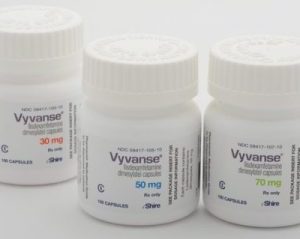Ultimate Guide to Vyvanse. Vyvanse is a widely prescribed medication that helps manage ADHD and binge-eating disorder. In this guide, you’ll find detailed information about Vyvanse, how it compares to similar drugs, common side effects, and answers to frequently asked questions.
Hva er Vyvanse?
Vyvanse, also known as Lisdexamfetamine dimesylate, treats ADHD by improving focus and impulse control. It affects dopamine and norepinephrine levels in the brain, enhancing mental clarity.
Vyvanse 30 mg: A Starting Point

Doctors often prescribe Vyvanse 30 mg as an initial dose to evaluate its effects. Based on your response, they may increase the dosage to suit your needs.
How Vyvanse Helps with ADHD
Vyvanse effectively improves attention span, reduces hyperactivity, and curbs impulsive behavior. Its long-lasting effects make it a dependable choice for individuals needing consistent ADHD symptom control.
Vyvanse vs. Other ADHD Medications
Vyvanse vs. Ritalin
Vyvanse and Ritalin differ in their active ingredients. Vyvanse contains lisdexamfetamine and provides a smooth, long-lasting effect. Ritalin, with its shorter duration, often requires multiple doses daily to maintain effectiveness.
Vyvanse vs. Adderall
The key difference lies in their formulations. Vyvanse activates gradually, ensuring stable symptom control throughout the day. Adderall, a mix of amphetamine salts, acts faster but can cause fluctuations in effect.
Vyvanse vs. Aduvanz
Aduvanz and Vyvanse are the same medication marketed under different names. Both offer identical benefits for managing ADHD symptoms.
Vyvanse vs. Elvanse
Elvanse is the European version of Vyvanse. They share the same active ingredient and provide similar results, though their packaging and dose options may vary.
Ritalin vs. Vyvanse: Making a Choice
Your choice depends on your needs. Ritalin works well for short-term focus, while Vyvanse offers all-day symptom management. Discuss options with your doctor to find the best fit.
Managing Vyvanse Use and Side Effects
What Happens During Vyvanse Withdrawal?
Stopping Vyvanse suddenly can lead to withdrawal symptoms such as fatigue, mood swings, or difficulty concentrating. Always talk to your doctor before changing or stopping your dosage.
Signs Your Vyvanse Dose Is Too High
High doses of Vyvanse can trigger anxiety, irritability, rapid heart rate, or trouble sleeping. If you experience these symptoms, consult your doctor immediately.
Does Vyvanse Cause Anxiety?
Vyvanse can cause anxiety in some users, especially when taken in high doses. Adjusting the dose or addressing underlying anxiety can help manage this side effect.
Lifestyle Considerations with Vyvanse
Is It Safe to Combine Vyvanse and Alcohol?
Mixing Vyvanse with alcohol is unsafe. Alcohol amplifies side effects like dizziness or a rapid heartbeat, increasing health risks.
Does Vyvanse Cause Weight Loss?
Vyvanse often suppresses appetite, leading to weight loss. While this can benefit individuals with binge-eating disorders, excessive weight loss requires monitoring and medical advice.
Why Snorting Vyvanse Is Dangerous
Snorting Vyvanse is both ineffective and harmful. The drug is designed for slow release, and misuse can lead to severe health complications, including addiction or overdose.
Final Thoughts
Vyvanse is a reliable option for managing ADHD and related conditions. Understanding how it works, comparing it to alternatives, and knowing its side effects allow you to make informed decisions about your treatment.
Talk to your doctor about your symptoms and goals to create a personalized treatment plan. For more resources on ADHD management, check out our website.